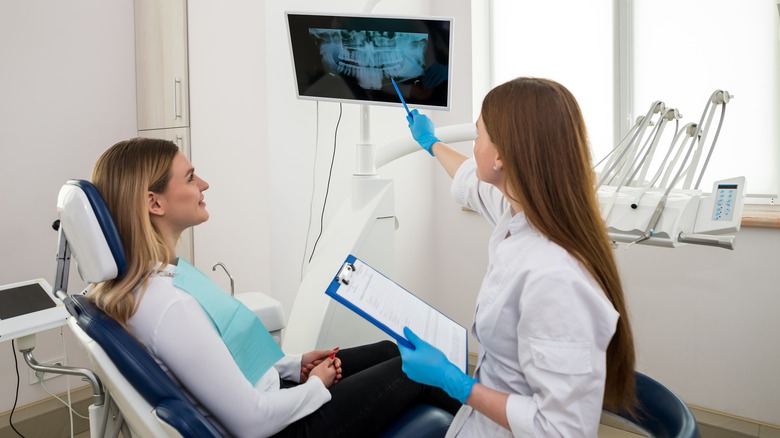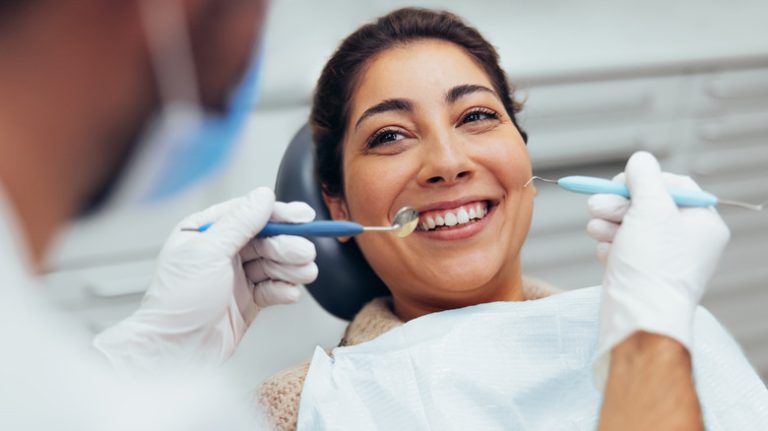A dental abscess is a bump filled with pus. It is usually found in or around your tooth, such as your gums, and can be traced back to a bacterial infection, as per the Cleveland Clinic. In turn, symptoms can include aching when eating or consuming hot or cold liquids, fever, bad breath, inflamed lymph nodes, and, of course, discomfort, among others. Unfortunately, those who smoke, don’t maintain proper dental hygiene, experience dry mouths, or have a low immune system, may be more prone to dental abscesses.
Therefore, it’s best to take care of it as soon as possible because, on rare occasions, the infection can lead to other issues in the body and affect the heart and brain. That being said, to prevent it from getting to that point, it’s best to diagnose the infection right away. However, when it comes to treatment, many may wonder if the abscess is able to heal on its own. Here’s what we know.
The healing of a dental abscess

While other bumps that appear throughout the body, such as pimples, can be left alone to heal, a dental abscess is not one of them, according to the National Health Service (NHS). The longer it’s left on its own without treatment, the worse it can get (via the Cleveland Clinic). In fact, if you don’t feel any pain, that just means the nerve from the tooth isn’t working anymore.
Therefore, it needs to be cared for by a dentist promptly. However, before treating it, a doctor will diagnose the abscess by running a couple of exams, such as an x-ray of your entire mouth, and slightly touching the area where the abscess is to see how sensitive the area is. Once officially diagnosed, the pus from the bump will be extracted. In some cases where the problem is coming from inside the tooth, a root canal will be done. If a root canal can’t be done, a dentist may simply have to remove the tooth entirely.
How to prevent a dental abscess

In order to avoid going through the pain of a dental abscess or even a root canal, follow a few simple everyday tasks. For one, be consistent when it comes to brushing your teeth. It can save you from a whole lot of discomfort in the long run. Aside from brushing twice a day, Robert Scott Nance, D.D.S., M.S., P.A. recommends brushing for a total of two minutes each time and flossing. Plus, while you can be doing everything right at home, it’s crucial to also keep up with your dental checkups at least twice a year, that way any abscess can be discovered early on.
On top of that, you may also want to keep track of changing your toothbrush every three months, according to NHS. And lastly, quitting smoking can make a big difference in not just avoiding an abscess, but in your overall dental health.




